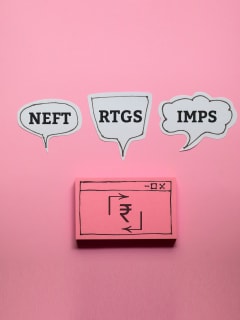CKYC Registry
-
Customer Service Contact us Service request Locate a branch
Find all the help you need
Scan the QR, get our app, and find help on your fingertips

Help CenterSupport topics, Contact us, FAQs and more
-
Login
Are you ready for an upgrade?
Login to the new experience with best features and services
-
Login
Are you ready for an upgrade?
Login to the new experience with best features and services
- Accounts
-
Deposits
IDFC FIRST Bank Deposits
View all Deposits -
Loans
IDFC FIRST Bank Loans
View all Loans - Wealth & Insure
-
Payments
IDFC FIRST Bank Payments
View all Payments -
Cards
IDFC FIRST Bank Cards
View all Cards - Blogs
- Corporate Account
-
Cash Management Services
IDFC FIRST Bank Cash Management Services
View all Cash Management Services - Supply Chain Finance
-
Corporate Lending
IDFC FIRST Bank Lending
View all -
Treasury
IDFC FIRST Bank Treasury
See more details - NBFC Financing
Support topics, Contact us, FAQs and more
- IDFC FIRST Bank Accounts
-
Savings Account
-
Corporate Salary
Account -
Senior Citizens
Savings Account -
First Power
Account -
Current Account
-
NRI Savings
Account -
TASC Institutional
Account -
Savings Account
Interest Calculator
- IDFC FIRST Bank Deposits
-
Fixed Deposit
-
Recurring Deposit
-
NRI Fixed Deposit
-
Safe Deposit Locker
-
FD Calculator
-
RD Calculator
- IDFC FIRST Bank Loans
-
Personal Loan
-
Consumer Durable
Loan -
Home Loan
-
Business Loan
-
Professional Loan
-
Education Loan
-
New Car Loan
-
Pre-owned Car Loan
-
Two Wheeler Loan
-
Pre-owned Two
Wheeler Loan -
Commercial Vehicle
Loan -
Gold Loan
-
Loan Against Property
-
Loan Against Securities
-
Easy Buy EMI card
-
Personal Loan
EMI Calculator -
Education Loan
EMI Calculator -
Home Loan
EMI Calculator -
EMI Calculator
-
Personal Loan Eligibility Calculator
- IDFC FIRST Bank Wealth & Insure
-
FIRST Select
-
FIRST Wealth
-
FIRST Private
-
Mutual Funds
-
Sovereign Gold Bond
-
Demat Account
-
Term Insurance
-
Life Insurance
-
Health Insurance
-
General Insurance
-
Bonds
-
Loan Against
Securities -
Portfolio Management
Service
- IDFC FIRST Bank Payments
-
FASTag
-
Credit Card
Bill Payments -
UPI
-
Funds Transfer
-
Forex Services
-
Pay Loan EMI
- IDFC FIRST Bank Cards
-
Ashva :
Metal Credit Card -
Mayura :
Metal Credit Card -
FIRST Millennia
Credit Card -
FIRST Classic
Credit Card -
FIRST Select
Credit Card -
FIRST Wealth
Credit Card -
FIRST WOW!
Credit Card -
Deals
-
Debit Cards
-
Co-branded Cards
-
Credit Card
EMI Calculator -
FIRST Corporate
Credit Card -
FIRST Purchase
Credit Card -
FIRST Business
Credit Card
- Premium Metal Credit Cards
-
AshvaLifestyle1% Forex₹2,999
-
MayuraLifestyleZero Forex₹5,999
-
FIRST PrivateInvite Only
- Best for travellers
-
MayuraZero ForexMetal₹5,999
-
Ashva1% ForexMetal₹2,999
-
FIRST WOW!Zero ForexTravelLifetime Free
-
FIRST SWYPTravel OffersEMI₹499
-
FIRST Select1.99% ForexLifestyleLifetime Free
-
FIRST Wealth1.5% ForexLifestyleLifetime Free
-
Club VistaraTravelLifestyle₹4,999
-
IndiGo IDFC FIRST Dual Credit CardTravelLifestyle₹4,999
- Max benefits, Free for life
-
FIRST Classic10X RewardsShoppingNever Expiring Rewards
-
FIRST Millennia10X RewardsShoppingNever Expiring Rewards
-
FIRST Select10X RewardsLifestyle1.99% Forex
-
FIRST Wealth10X RewardsLifestyle1.5% Forex
-
FIRST WOW!RewardsTravelZero Forex
-
LIC ClassicRewardsInsuranceShopping
-
LIC SelectRewardsInsuranceShopping
- Reward Multipliers
-
AshvaLifestyleMetal₹2,999
-
MayuraLifestyleZero Forex₹5,999
-
FIRST ClassicNever Expiring RewardsShoppingLifetime Free
-
FIRST MillenniaNever Expiring RewardsShoppingLifetime Free
-
FIRST SelectNever Expiring RewardsLifestyleLifetime Free
-
FIRST WealthNever Expiring RewardsLifestyleLifetime Free
- Rewards & Credit on UPI
-
FIRST Power+FuelUPI₹499
-
FIRST PowerFuelUPI₹199
-
FIRST EA₹NVirtual1% Cashback₹499
-
FIRST DigitalVirtualUPI₹199
-
IndiGo IDFC FIRST Dual Credit CardUPITravelDual cards
- Fuel and Savings
-
FIRST PowerRewardsUPI₹199
-
FIRST Power+RewardsUPI₹499
-
LIC ClassicRewardsInsuranceShopping
-
LIC SelectRewardsInsuranceShopping
- Express and Flaunt
-
AshvaMetal1% Forex₹2,999
-
MayuraMetalZero Forex₹5,999
-
FIRST SWYPEMIOfferMAX₹499
-
FIRST MillenniaRewardsShoppingLifetime Free
- FD Backed rewarding Credit Cards for all
-
FIRST EA₹NVirtualCashback₹499
-
FIRST WOW!Zero ForexTravelLifetime Free
-
CreditPro Balance TransferTransfer & SaveReduce InterestPay Smartly
- IDFC FIRST Bank NRI Forex Solutions
-
Send money to India-Wire transfer
-
Send money to India-Digitally
-
Send money abroad
-
Max Returns FD (INR)
- IDFC FIRST Bank MSME Accounts
-
Platinum Current
Account -
Gold
Current Account -
Silver Plus
Current Account -
Merchant Multiplier
Account -
Agri Multiplier
Account -
TASC Institutional
Account -
Dynamic Current
Account -
World business
Account -
First Startup
Current Account
- IDFC FIRST Bank Business Loans
-
Business Loan
-
Professional Loan
-
Loan Against Property
-
Business Loan for Women
-
Working Capital Loan
-
Construction Equipment Loan
-
Machinery Loan
-
Healthcare Equipment Loan
- IDFC FIRST Bank Business Solutions
-
Payment Solutions
-
Tax Payments
-
Doorstep Banking
-
Point of Sale (POS)
-
Escrow Accounts
-
NACH
-
Payment Gateway
-
UPI
-
Virtual Accounts
-
As per amendment in the Income Tax Rules, PAN or Aadhaar are to be mandatorily quoted for cash deposit or withdrawal aggregating to Rupees twenty lakhs or more in a FY. Please update your PAN or Aadhaar. Kindly reach out to the Bank’s contact center on 1800 10 888 or visit the nearest IDFC FIRST Bank branch for further queries.
-
-
Most Searched
Sorry!
We couldn’t find ‘’ in our website
Here is what you can do :
- Try checking the spelling and search
- Search from below suggestions instead
- Widen your search & try a more generic keyword
Suggested
Get a Credit Card
Enjoy Zero Charges on All Commonly Used Savings Account Services
Open Account Now
What is Gratuity in a salary: Calculation and Eligibility
Key Takeaways
Employers have to mandatorily provide employees with gratuity for long-term service, as regulated by the Payment of Gratuity Act, 1972.
For an employee to be eligible for gratuity, they need to complete at least 5 years of continuous service with a single employer, with exception in cases of death or disability.
For government employees, the tax exemptions on gratuity are capped at ₹25 lakhs and ₹20 lakhs for private sector employees, any amount above this limit is taxable.
Loyalty is rarely unrewarded. If you stay invested long-term, many investment instruments can earn returns and help you build a wealth corpus. Similarly, if you stay with one employer for years, the employer may provide several benefits as a token of appreciation. If you are awarded monetary benefits, it is called gratuity.
Although gratuity is a familiar term, some confusion still exists. For example, many wonder if employers are required to pay gratuity or if it is optional. Does the employer pay gratuity out of their own pocket, or is there an employee contribution? Let us find out.
READ MORE
What is gratuity?
Gratuity is a monetary reward given by employers to employees as a token of appreciation for their long-term service. Governed by the Payment of Gratuity Act, 1972, gratuity is a legal obligation for employers in India.
In simple words, gratuity represents a financial thank-you for an employee's dedication and loyalty. Employers typically pay gratuity either directly from their funds or through a gratuity insurance plan. In the latter case, an insurance company disburses the payment when the employee qualifies. To be eligible for gratuity, an employee must complete at least five years of continuous service with the same employer. This benefit is also provided in cases of retirement, resignation after the stipulated period, or unfortunate events like the employee's death or disability.
How does gratuity work?
When an employee joins a company, they are automatically enrolled in the organisation’s gratuity scheme. At the time of their exit, whether due to resignation, retirement, or unfortunate circumstances like death or disability, the gratuity process begins automatically. Employers may either fund gratuity directly from their reserves or manage it through a specialised insurance provider.
The employee or nominee (in case of death) typically submits a formal claim or application. The employer then calculates the amount and communicates the lump-sum payment to the employee.
Keep in mind that if the employee leaves before meeting the eligibility criteria, they forfeit the gratuity.
Key purpose of gratuity
Gratuity acts as more than just critical financial support. Its primary purposes include:
- Recognising loyalty: Acknowledging long-term dedication and commitment by employees.
- Promoting financial security: Providing a financial cushion after retirement, resignation, or unforeseen events.
- Supporting families: Offering immediate support to families in case of an employee’s untimely demise.
- Building stronger relationships: Encouraging employees to stay longer with the organisation.
Advantages of gratuity
Gratuity benefits employees in multiple ways:
- Guaranteed post-employment benefit: Employees receive a legally entitled payout after fulfilling minimum service requirements.
- Partial tax exemption: A tax-free portion of gratuity increases the final earnings an employee receives upon leaving the organisation.
- Financial planning support: Gratuity contributes to building a broader retirement plan along with provident fund and pension savings.
- Predictable legal entitlement: Unlike bonuses, gratuity is governed by law, which means you, as an employee, have clarity on future payouts.
Eligibility criteria for gratuity
· Continuous service: Completion of at least five years with the same employer.
· Retirement or superannuation: Eligibility upon retirement or superannuation.
· Resignation: Leaving the organisation after fulfilling the five-year requirement.
· Death or disability: Payment to the employee’s nominee if they pass away or suffer a disability.
Understanding Gratuity Act, 1972
The Payment of Gratuity Act, 1972, governs gratuity payments in India. The act aims to provide financial security to employees who dedicate several years to one organisation.
Key highlights of the act include:
- Applicability to establishments with 10 or more employees.
- The five-year continuous service rule does not apply in case of an employee's death or disablement.
- Penalties for employers failing to pay gratuity within 30 days of it becoming due.
- Protection of gratuity from being forfeited except in cases involving employee misconduct.
Understanding the act helps employees know their rights, and employers meet their obligations responsibly.
Gratuity is entirely funded by the employer without any periodic contribution from the employee, unlike schemes such as PF or NPS.
Calculating gratuity
Gratuity calculations depend on your last drawn salary and years of service. The formula differs slightly based on whether your employer falls under the Gratuity Act. Let’s look at both scenarios carefully:
Calculation of gratuity for employees covered under the Gratuity Act
If your organisation falls under the Gratuity Act, use this formula:
Gratuity = (15 x last drawn salary x years of service) ÷ 26
Where:
- Last drawn salary includes basic salary and dearness allowance
- 15 represents 15 days’ salary for each completed year
- 26 denotes the number of working days in a month
For example, if your last drawn salary is ₹50,000, and you have worked for 10 years, the gratuity would be:
(50,000 × 15 × 10) ÷ 26 = ₹2,88,461.54 (around 2.8 lakh)
Calculation of gratuity for the employees not covered under the Gratuity Act
The formula used here is:
Gratuity = (15 x last drawn salary x years of service) ÷ 30
In this formula:
- 30 represents the total days in a month, unlike 26 working days.
So, for a last drawn salary of ₹50,000 and 10 years of service, gratuity would be:
(15 × 50,000 x 10) ÷ 30 = ₹2,50,000
Thus, gratuity is slightly lower in this scenario.
Gratuity calculation in case of death of an employee
In case an employee passes away during service, gratuity depends on the years served but follows a fixed slab structure:
Length of service |
Gratuity amount (as multiples of monthly salary) |
Less than 1 year |
2 × salary |
1 year or more but less than 5 years |
6 × salary |
5 years or more but less than 20 years |
12 × salary |
20 years or more |
Half of the emoluments for each completed six-month period, subject to a maximum of 33 times the emoluments. |
The family or nominee receives this amount directly.
Is gratuity taxable?
Let’s understand how taxation works on gratuity:
Tax on gratuity
Gratuity received by employees may attract income tax depending on the category of employment and the amount received.
- For government as well as private-sector employees, gratuity becomes taxable if it exceeds the prescribed exemption limit.
- Any taxable portion is added to the employee’s income under the head “Income from Salary” and taxed according to the applicable slab rate.
Tax exemptions on gratuity
Government employees: Tax exemption on gratuity is now up to ₹25 lakh (Before January 1, 2024, it was ₹20 lakh).
Private-sector employees covered under the act: Exemption depends on the least of:
· Eligible gratuity (as per the formula above)
- Actual gratuity received
- ₹20 lakh
Private-sector employees not covered under the act: Exemption depends on the least of:
- ₹20 lakh
- Actual gratuity received
- Half month's salary for each completed year of service is exempt.
The remaining amount, if any, is taxed under “Income from Salaries” according to the applicable slab rate.
Maximum limit on gratuity amount
As discussed earlier, for central government employees, the maximum gratuity exemption limit is ₹25 lakh. For private sector employees, the maximum tax-free gratuity limit remains ₹20 lakh. Any amount above this is considered ex-gratia, which is voluntary and not legally enforced.
To simplify gratuity and financial planning, you can also use a gratuity calculator online. Just input the following basic details, and the calculator does the math:
- Employment period: It's vital to record exact years and months of service for precise calculations.
- Monthly salary: Enter your final salary. This figure typically combines basic pay and daily allowance (DA).
- Commission on sales: For those earning sales incentives, it's crucial to add this monthly sum.
After inputting all these details, the calculator shows an estimated gratuity amount and reveals what you can anticipate from your employer.
Gratuity rules
In India, gratuity on salary becomes payable when an employee ends their employment after continuous service of at least five years. This payment occurs upon superannuation, retirement, resignation, or due to an employee's death or disablement in an accident or disease. Notably, the five-year requirement does not apply in cases of death or disablement.
For situations involving death or disability from accidents or illness, the nominee or legal heir gets the payment. If this nominee stands as a minor, the assistant labour commissioner invests the money in a term deposit in a nationalised bank until the minor reaches adulthood.
Employees eligible for gratuity can apply within 30 days of its payability. If they know their retirement or superannuation date, they may apply even earlier. A delay in application doesn't invalidate the claim, provided there's a genuine reason for the delay. The employer has an obligation to disburse the gratuity amount within 30 days of its payability.
For claims made by a nominee or heir, the employer might seek evidence or a witness to confirm the identity of the claimant or the authenticity of the claim. Upon getting the evidence, the employer acknowledges the claim.
Conclusion
Gratuity in salary is a significant component of an employee's compensation structure. It is a testament to an employee's dedication and years of service. It signifies the employer's acknowledgement of the value that long-term employees bring. This financial token appreciates years of hard work and fortifies the employee's financial future.
Speaking of securing your future, proactive financial planning with reliable salary accounts [KM1] is also beneficial. With an IDFC FIRST Bank Corporate Salary Account, you can enjoy higher interest rates, monthly interest payouts to grow your wealth faster, and avail all common salary account services completely free of cost. These features greatly amplify your savings over time. In addition, you enjoy a higher daily transaction limit of ₹6 lakhs and cash withdrawal limit of ₹2 lakhs to effectively manage your expenses and enjoy exclusive access to 20+ OTT platforms and attractive discounts across 40 brands with Times Prime.
Combined with unmatched convenience and the mobile banking app, it becomes the perfect financial companion. Its value-added features complement modern lifestyles and offer more than just a safe haven for your funds.
Frequently Asked Questions
What is the maximum amount of gratuity exempted from tax?
The maximum gratuity amount exempt from tax is ₹25 lakh for government employees, ₹20 lakh for private-sector employees, if covered under Payment of Gratuity Act, 1972, and ₹10 lakh if not covered under the Gratuity Act. Employers may pay more than this limit, but any amount exceeding the exempt limit becomes taxable.
Is the notice period considered for gratuity?
Since the employee remains on the payroll during the notice period, it counts towards the total length of continuous service for gratuity eligibility and calculation.
Am I eligible for gratuity after 5 years if I'm a contract employee?
The contractor or service provider must pay gratuity to contract workers who have completed continuous service, as mandated by the Payment of Gratuity Act, 1972.
Disclaimer
The contents of this article/infographic/picture/video are meant solely for information purposes. The contents are generic in nature and for informational purposes only. It is not a substitute for specific advice in your own circumstances. The information is subject to updation, completion, revision, verification and amendment and the same may change materially. The information is not intended for distribution or use by any person in any jurisdiction where such distribution or use would be contrary to law or regulation or would subject IDFC FIRST Bank or its affiliates to any licensing or registration requirements. IDFC FIRST Bank shall not be responsible for any direct/indirect loss or liability incurred by the reader for taking any financial decisions based on the contents and information mentioned. Please consult your financial advisor before making any financial decision.
The features, benefits and offers mentioned in the article are applicable as on the day of publication of this blog and is subject to change without notice. The contents herein are also subject to other product specific terms and conditions and any third party terms and conditions, as applicable. Please refer our website www.idfcfirstbank.com for latest updates.























